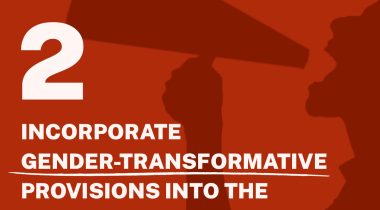
Nick Shaxson ■ Will Antoine Deltour become a prisoner of conscience?

So the latest big tax haven whistleblower, Antoine Deltour, is facing the combined massed might of Luxembourg, one of the world’s biggest and most aggressive tax havens, and the Big Four accounting firm PWC, one of the biggest and most aggressive lobbyists for offshore tax and secrecy legislation.
Deltour faces up to ten years in prison.
Now there’s a new film coming out about Luxembourg whistleblowing, as it happens. But it isn’t about Deltour. More on him in a minute, but this one is about an earlier whistleblowing Clearstream saga exposed by the French investigative journalist Dénis Robert, and a couple of sources of information in Luxembourg. The film looks good – watch the clip – but we’ll single out a particular quote from the filmmaker, Vincent Garenq, in Variety magazine:
“There’s always that sacrificial dimension to whistle-blowers. They take enormous risks for moral reasons, and, in the short term, only ever cause great harm and inconvenience to themselves. We’re seeing it in the recent “Lux Leaks” scandal. Exposing how a state carefully puts together a system that allows multinationals to avoid paying taxes makes you liable to being brought to justice for “violation of secrets that affect state security”.
It’s the cynicism of the age we live in. But in the long run, as happens with Denis Robert, whistle-blowers will be duly recognized because we live in an era where, with the speed of Internet, it will be increasingly difficult to keep things quiet.”
It’s very important to bear this in mind. Now we haven’t seen the Clearstream film yet, but we’d offer a few thoughts.
First, if Deltour were to go to jail – as has happened to other tax haven whistleblowers such as Switzerland’s Rudolf Elmer – there is a pretty unarguable case that he would be a prisoner of consience. A tax justice and human rights community is steadily building up steam, and we are sure (having discussed this with a few people recently) that this is a runner.
What is a prisoner of conscience? Well, people may have different opinions, but Wikipedia has a definition that will surely satisfy most people:
“the term can refer to anyone imprisoned because of their race, sexual orientation, religion, or political views. It also refers to those who have been imprisoned and/or persecuted for the non-violent expression of their conscientiously held beliefs.”
That second sentence is the relevant one here, in our opinion.
A second related point, as we recently noted, it is time for the large human rights organisations – calling on Amnesty International and Human Rights Watch, just for example – to step up to the plate and start to get their heads around the fascinating, infuriating, enormous issue of offshore tax havens in all their glory. The offshore system hosts and triggers human rights violations, in a wide range of areas beyond whistleblowing – take a look at some early work, here.
For reasons of capacity we at TJN haven’t done justice to supporting many tax whistleblowers, but around Deltour we’re actively involved in starting to build an international support community for him. For one thing, we’ve got a good story to tell, with a pantomime villain (PWC), a hero (Deltour, who was motivated by the public interest, not money) plus a huge media appetite, judging from the international scale and scope of the Luxleaks scandal.
The scandal highlights another important element of the Luxleaks scandal: the destructive relationship between the secrecy state and the corporate secrecy industry. Something we’ve written about repeatedly, and at length.
And Garenq is right: it’s astonishing how cynical the case against Deltour is: the use of a criminal prosecution system to close down disclosure of information that is clearly and absolutely in the public interest.
Prosecuting whistleblowers like Rudolf Elmer, Hervé Falciani, Heinrich Kieber, and Deltour turns them into prisoners of conscience and violates human rights since the public has a right to information relating to deals being conducted by states in their name.
Related articles
UN Submission: A Roadmap for Eradicating Poverty Beyond Growth
A human rights economy: what it is and why we need it

Do it like a tax haven: deny 24,000 children an education to send 2 to school

Incorporate Gender-Transformative Provisions into the UN Tax Convention
Just Transition and Human Rights: Response to the call for input by the Office of the UN High Commissioner for Human Rights
13 January 2025

Tax Justice transformational moments of 2024

The Tax Justice Network’s most read pieces of 2024

Stolen Futures: Our new report on tax justice and the Right to Education
Stolen futures: the impacts of tax injustice on the Right to Education
31 October 2024


Thanks for your support to Antoine! Note that Antoine Deltour’s support committee’s website is:
https://support-antoine.org/en/
It notably features a brief description of Antoine’s role in the LuxLeaks case, and a link to sign a pledge on change.org.
to support the work of whistleblowers for transparency, sign and share the European Citizens’ Initiative against shell entities!
http://www.transparencyforall.org/